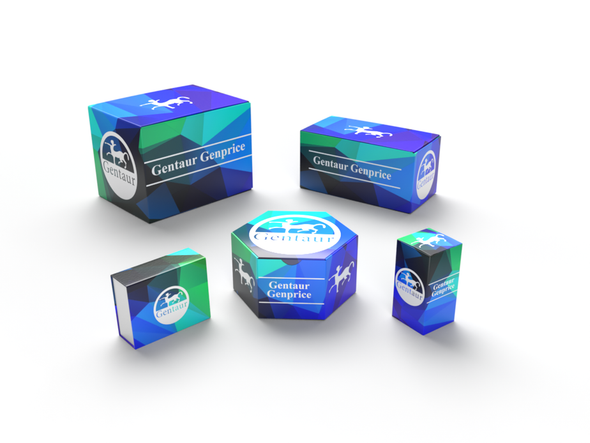740
Human Squalene monooxygenase (SQLE) ELISA Kit | AE15135HU
- SKU:
- 740-AE15135HU
- Availability:
- Usually ships in 5 working days
Description
Human Squalene monooxygenase (SQLE) ELISA Kit | AE15135HU | Gentaur UK, US & Europe Distribution
Species Reactivity: Human (Homo sapiens)
Abbreviation: SQLE
Alternative Name: FLJ30795; squalene monooxygenase
Application: ELISA
Range: 0.312-20 ng/mL
Sensitivity: 0.114 ng/mL
Intra-Assay: ≤4.4%
Inter-Assay: ≤7.1%
Recovery: 0, 95
Sample Type: Serum, Plasma, Other biological fluids
Detection Method: Sandwich
Analysis Method : Quantitive
Test Principale: This assay employs a two-site sandwich ELISA to quantitate SQLE in samples. An antibody specific for SQLE has been pre-coated onto a microplate. Standards and samples are pipetted into the wells and anySQLE present is bound by the immobilized antibody. After removing any unbound substances, a biotin-conjugated antibody specific for SQLE is added to the wells. After washing, Streptavidin conjugated Horseradish Peroxidase (HRP) is added to the wells. Following a wash to remove any unbound avidin-enzyme reagent, a substrate solution is added to the wells and color develops in proportion to the amount of SQLE bound in the initial step. The color development is stopped and the intensity of the color is measured.
Product Overview: Squalene epoxidase (EC 1.14.99.7) catalyzes the first oxygenation step in sterol biosynthesis and is thought to be one of the rate-limiting enzymes in this pathway. Squalene epoxidase (SE) is a key flavin adenine dinucleotide (FAD) -dependent enzyme of ergosterol and cholesterol biosynthetic pathways and an attractive potential target for drugs used to inhibit the growth of pathogenic fungi or to lower cholesterol level. By PCR analysis of a human/rodent somatic cell hybrid mapping panel, Nagai et al. (1997) demonstrated that the human SQLE gene maps to chromosome 8. The localization was refined by PCR analysis of a radiation hybrid panel. The results showed that human SQLE is most tightly linked to D8S508, which is reported to be located at 8q24.13-qter. The authors used fluorescence in situ hybridization to map SQLE to 8q24.1.
Stability: The stability of ELISA kit is determined by the loss rate of activity. The loss rate of this kit is less than 5% within the expiration date under appropriate storage condition. The loss rate was determined by accelerated thermal degradation test. Keep the kit at 37°C for 4 and 7 days, and compare O.D.values of the kit kept at 37°C with that of at recommended temperature. (referring from China Biological Products Standard, which was calculated by the Arrhenius equation. For ELISA kit, 4 days storage at 37°C can be considered as 6 months at 2 - 8°C, which means 7 days at 37°C equaling 12 months at 2 - 8°C) .






